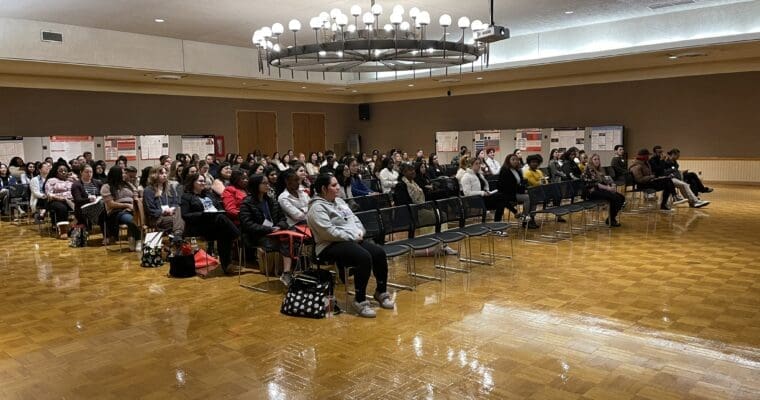When I first heard about new book iGen: Why today’s super-connected kids are growing up less rebellious, more tolerant, less happy– and completely unprepared for adulthood (and what this means for the rest of us), I was initially defensive. This book has been widely promoted in the media and has been featured by outlets such as CBS News, PBS NewsHour, The Wall Street Journal, and The Atlantic to name just a few. Author of iGen and generational researcher Dr. Jean Twenge states that the iGen generation was born between 1995 and 2012. I was born in 1996, and I don’t feel as though I grew up in a world dictated by the internet or an iPhone. I got my first cellphone when I was in middle school, however it was a flip phone that only had the ability to call my parents and emergency responders. I didn’t get a phone that had the capability to text until I was a freshman in high school, and I didn’t get a smartphone until I was a junior in high school. Facebook was a popular form of social media when I was growing up, however that was really the only one my friends and I used.
Twenge’s basis of this book, seems to be focused on finding the root cause for some of the substantial and complicated issues she believes that iGen is facing. She does this with a two-part test: it must be correlated with mental health issues or unhappiness, and it must have changed at the same time as some advancements in technology have occurred. For instance, she is focused on screen time and the level of iGen happiness. Unlike Twenge, I believe many other variables (e.g., family instability, parent-child relationships, societal changes, more awareness about mental health) that could also be in play regarding the topics she addresses through her book. I simply don’t believe that smartphones are the only reason iGen members are unable to have quality committed relationships, socialize with their peers, or hold a successful job they’re passionate about. For instance, one writer suggested that perhaps, the amount of time parents spend on electronic devices could also coincide with how often their child spends using technology. As a member of iGen, if our primary caregivers are spending time with their phones, it likely encourages us to do the same. In other words, this could actually be thought of as a systemic issue, not a generational issue.
However, now that I’m a college student, I’ve become worried for some of those around me. Frequently at social events on campus a majority of my peers are on their phones rather interacting with one another face to face. They also seem to be going out less then I would expect. It’s as though being social time online is more exciting than lets say—going on a walk with your friends, or going out to eat. Twenge has found that a majority of iGen would rather stay at home on their phones then go out with their friends. According to Twenge (2017) about a third of communication regarding getting to know each other for iGen occurs through technology and social media platforms. She’s also found that members of this generation are much less likely to date, but instead engage in the act of “talking.” Twenge (2017) confirms the existence of this pre-dating phase of just talking that Dr. Sibley and our team has been researching for that past several years. This is certainly noteworthy for our research team, and consistent with our findings. Interestingly, Dr. Sibley and his colleagues have also found that emerging adults would prefer to be dating than just talking, and we hope to continue to research this idea in the future.

I do not agree with Twenge (2017) and her belief that generational differences are the best way to research this age group. I can see where she’s coming from, but I cannot completely jump on board. I believe that life stages (childhood, adolescence, emerging adulthood) are a more effective way to study as population. It makes sense to me that our generation will show different statistics because we grew up with new and unprecedented technological advances . Technology has always been in our lives, unlike how our parents grew up. However, just because they didn’t grow up with it, I don’t think this means our outcomes are so entirely different. Not only are iGen members engaging in just talking relationships due to their inability to commit and the sea of ambiguity their trapped in. It’s important to note that single adults from previous generations may also be falling into this trap.
Twenge also talks about the new action of ghosting another person which is becoming common throughout iGen. This is something our research team has been reading about lately, and that we hope to investigate in the future. As a research team we do not believe that ghosting in romantic relationships is limited to only one generation. We’re constantly searching for the best possible option when it comes to finding a serious partner, that we justify pretending that the previous person doesn’t exist if we’ve found something better. I also found it interesting when she discussed the idea of dating partners. I would consider this a “just talking” relationship. They talked about how a significant other would bring you homemade soup if you were sick, when a dating partner would bring you a can of soup if they had nothing better to do. Committing to a relationship is slowly becoming foreign to some individuals in our society. I wouldn’t say these things are restricted to iGen, but they are issues being pushed by our reliance on communicating through technology.
Are smartphones, social media, and the internet really leading to the demise of an entire generation? From our perspective we would emphatically say, no they are not. There are simply too many other factors at play to generalize the outcomes of an entire generation. As others have written, it is clear that Twenge has a number of assumptions on display throughout her book, and very few counterpoints to some of her most critical arguments. Perhaps the most significant contribution I believe Twenge makes with iGen, is stirring up an important conversation about how our technology is impacting our relationships. A lot of the data within this book is strangely common throughout the students I come across on a daily basis. Everyone has their smart phone out, and social media plays a huge role throughout their daily lives. Many are fearful of adulting, and would prefer checking out what new filters Snapchat has added that day. We might have grown up in a different world then previous generations, but I have faith we’ll find our way to a healthy lifestyle. I would like to see this research broken down into life stages such as childhood and emerging adulthood, rather than focusing just on the generation. I look forward to more research being done on the impacts of technology on individuals throughout our society.
References
- Sibley, D. S., Knapp, D., Brown, C., Mallory, A., & Vennum, A. (2017). “We’re just talking”: Investigating a new trend in emerging adult romantic relationship formation.
- Twenge, J. M. (2017). iGen: Why today’s super-connected kids are growing up less rebellious, more tolerant, less happy– and completely unprepared for adulthood (and what this means for the rest of us). New York, NY : Atria Books.
Hi, my name is Taylor! I’m a senior Family Social Service major at NIU, with a minor in deaf rehabilitation and psychology. I love reading, volunteering, and spending time with my friends and family. I want to continue writing book reviews for Decide to Commit, and I hope to work on different research projects throughout the next year. Thank you for visiting our blog!









